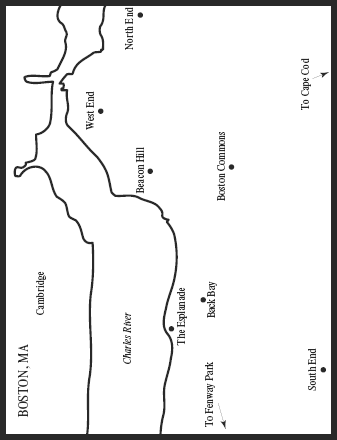
Полная версия
A Perfect Pair

“I want the whole thing, Nate. I want a family. I want kids—and a husband. The whole package.”
Nate leaned in, so that they were nearly nose to nose. “Since when, Josey? You love being single. How many times have you waxed philosophical about how impossible it must be to find the right man and so you weren’t going to bend over backwards to do it?”
“So what?” Her voice turned stubborn. “I can’t change my mind?”
“You can change your mind, but this is a complete about-face. It’s weird.”
“Oh, I’m so glad you think I’m weird.”
“Josey, I’m sorry,” he said, grabbing her hand. “It’s just surprising. But I think it’s wonderful. I wish you luck. I really do.”
“You do?” she asked, her voice tripping with excitement.
Nate wondered why she was getting so emotional. “You know I do. You’re my friend and I’ll do anything to make sure you’re happy.”
A huge grin spread across her face. “I’m so glad you said that, you have no idea. Now I can get to what I really wanted to ask you tonight. I need your help….”
Dear Reader,
Well, the new year is upon us—and if you’ve resolved to read some wonderful books in 2004, you’ve come to the right place. We’ll begin with Expecting! by Susan Mallery, the first in our five-book MERLYN COUNTY MIDWIVES miniseries, in which residents of a small Kentucky town find love—and scandal—amidst the backdrop of a midwifery clinic. In the opening book, a woman returning to her hometown, pregnant and alone, finds herself falling for her high school crush—now all grown up and married to his career! Or so he thinks….
Annette Broadrick concludes her SECRET SISTERS trilogy with MacGowan Meets His Match. When a woman comes to Scotland looking for a job and the key to unlock the mystery surrounding her family, she finds both—with the love of a lifetime thrown in!—in the Scottish lord who hires her. In The Black Sheep Heir, Crystal Green wraps up her KANE’S CROSSING miniseries with the story of the town outcast who finds in the big, brooding stranger hiding out in her cabin the soul mate she’d been searching for.
Karen Rose Smith offers the story of an about-to-be single mom and the handsome hometown hero who makes her wonder if she doesn’t have room for just one more male in her life, in Their Baby Bond. THE RICHEST GALS IN TEXAS, a new miniseries by Arlene James, in which three blue-collar friends inherit a million dollars—each!—opens with Beautician Gets Million-Dollar Tip! A hairstylist inherits that wad just in time to bring her salon up to code, at the insistence of the infuriatingly handsome, if annoying, local fire marshal. And in Jen Safrey’s A Perfect Pair, a woman who enlists her best (male) friend to help her find her Mr. Right suddenly realizes he’s right there in front of her face—i.e., said friend! Now all she has to do is convince him of this….
So bundle up, and happy reading. And come back next month for six new wonderful stories, all from Silhouette Special Edition.
Sincerely,
Gail Chasan
Senior Editor
A Perfect Pair
Jen Safrey

To Bobbi Lerman,
a fantastic writer and friend, who coaxed this story
out of me even when it felt impossible. We did it!
JEN SAFREY
grew up in Valley Stream, New York, and graduated Boston University in 1993. She is a nearly ten-year veteran of the news copy desk at the Boston Herald. Past and present, she has been a champion baton twirler, an accomplished flutist, an equestrienne, a student of ashtanga yoga and a belly dancer. Jen would love to hear from readers at jen02106@lycos.com.

Contents
Prologue
Chapter One
Chapter Two
Chapter Three
Chapter Four
Chapter Five
Chapter Six
Chapter Seven
Chapter Eight
Chapter Nine
Chapter Ten
Chapter Eleven
Chapter Twelve
Chapter Thirteen
Chapter Fourteen
Chapter Fifteen
Chapter Sixteen
Chapter Seventeen
Chapter Eighteen
Chapter Nineteen
Prologue
Nate heard a woman shout in the apartment above, but he couldn’t make out the words.
The abrupt, angry sound pierced the silence in which Nate had been sitting at the kitchen table, spooning up Cheerios. He jumped slightly and a few Cheerios dripped onto his lap. He lifted the window curtain, opened the window and peered out. Squinting and tilting his face up to the early afternoon sun, he saw the open windows above him. After a few weeks of crisp, cold weather, the unusually mild November day had likely prompted his neighbor to air out her place. Nate silently waited a few moments. Nothing.
Slightly tense, he picked the Cheerios off his lap and reluctantly went back to eating. Still hearing nothing, he slurped on the spoon a little, quickly intercepting a stream of milk down his chin with a napkin. He hoped that one shout was the end of whatever was going on. As he scooped up the last Cheerio, he caught himself trying not to tap the bowl with the spoon, trying to stay quiet, his ears alert as a fox’s for another sign of discord.
He forced himself to relax his shoulders, to breathe normally. He reminded himself that one distinct drawback to living in Boston was getting to know neighbors intimately, whether he wanted to or not. And today, like most days, it really was “not.” He’d allowed himself the Sunday luxury of sleeping in as long as he could—until after noon—then he’d cracked open his briefcase and worked about an hour before he’d realized he’d forgotten to eat breakfast.
Nate put the bowl to his lips and drained the rest of his milk, feeling the sweet coldness slide down his throat, before carrying the bowl to the sink. He washed it carefully and rubbed it with a clean towel until it squeaked. He did the same with the spoon and replaced both in the overhead cabinet.
But then, there it was again.
Another wordless, indignant female scream echoed through the alley between buildings and into Nate’s kitchen. He stood motionless and tried again to talk himself out of his discomfort, this time attempting to be annoyed at the noise, the way a normal city dweller would be.
At least he’d already been awake and the racket hadn’t dragged him out of slumber, he told himself. Who was she yelling at, anyway? He didn’t even hear another voice.
He took the three steps to his sofa and fell onto it. He fumbled underneath his butt for the remote. A little channel surfing for half an hour wouldn’t put him too far behind, he thought. He needed a little downtime in his week. Besides, the TV would drown out his upstairs neighbor until she quit for the day, which, Nate hoped, was before he had to get down to serious work.
But before he could press the On button, there was a loud crash over his head, accompanied by an incredulous shriek.
Then silence.
Nate jolted upright.
There was someone with her. And it sounded like someone she’d pushed too far—someone who was going to hurt her. If he hadn’t already.
Nate tensed, waiting, his senses at attention. Then he heard another crash, like a piece of furniture hitting the wall, and another cry of outrage.
An image of the woman he’d never met flashed in his mind. Her features were unrecognizable, but there was terror in her eyes as she cowered, fearful of the next blow that was sure to come. He felt her terror now.
He had known it himself, long ago.
Nate leaped off the sofa and ran to his open window. “Hey!” he yelled, aware that his interference would be ineffective against someone like his own father, but hoping the man upstairs was a different kind of coward. “Hey! What’s going on up there?”
The woman yelled again, but what he heard couldn’t be right: “What is this freaking game?”
Game? Still at the window, Nate stared out at the parking lot, his thoughts tumbling over each other. Was someone playing some kind of sick “game” with her? Some twisted sex game, maybe? He knew one of his colleagues in the D.A.’s office had had a case like that a few months back. A man had inadvertently killed his wife while trying some kind of sadistic—
Over Nate’s head, the banging became rhythmic, like someone pounding the floor. “Come on!” the woman screamed. “Come on… Oh, God! No! No!”
Nate’s fury overwhelmed him. He dashed into his bedroom and blindly grabbed his baseball bat out of a corner. Then he ran down the short hallway, slipping a bit in his socks on the hardwood floor, and threw open his door. He raced up the stairwell, one flight, and without knocking, pushed open the door to the apartment directly above his own. He slid into the middle of the living room, bat raised, and the woman, sitting alone on the floor in front of the television, jumped to her feet and screamed.
“Are you okay?” he demanded.
The woman dropped her hands from her mouth. “Who the hell are you?” she shrieked.
Nate momentarily ignored her, scanning the room and the adjoining kitchenette, then stomping into her bedroom, then her bathroom, despite her cry of “Hey!”
Empty. Confirming she was alone, he returned to the living room, where she still stood, eyes wide, and he finally answered, “I live downstairs. I heard you yelling and—”
“And so you just rushed in here? Into my apartment?” The woman stared at him a minute. “Well, I’m sorry, I didn’t mean to disturb you. It’s just that I get very emotional about—”
“Are you okay?” Nate repeated. Frankly, she looked fine to him. Better than fine. She was gorgeous. Her blond hair was cropped short, like a boy’s, but her face was nothing but feminine—small turned-up nose, full pouty lips and enormous, milk-chocolate brown eyes.
She made some kind of sound, which sounded to Nate like part relieved sob and part laugh. “Well, a half-naked man just crashed into my living room with a baseball bat, apparently about to beat me up for making too much noise. Not a usual Sunday afternoon occurrence, but yeah, I’m pretty okay.”
Nate looked down at his ratty old jeans, only realizing now he was shirtless. “Where is he?” he asked, but his tone had softened a little bit.
She shook her head in confusion. “Wh-what? Who?”
“You were yelling. I heard you. And there was all that noise, banging around. Someone was…hurting you?”
“Oh, no.” She covered her mouth with her hands again. “Oh, no, I’m so sorry.” But her eyes were suddenly laughing. “It’s the game.”
“Yeah, I heard that, too—a game. What game?”
She pointed at the television. “Football game.”
Nate tore his eyes away from the woman’s enchanting face to the TV, where the announcer was saying, “And at the end of the first half, the score is the Denver Broncos 13, the New England Patriots 10.” Then a commercial, two guys walking through a desert, wishing for some great beer.
Nate kept his eyes on the screen. “The game? This game?”
“Yes. See,” the woman explained hurriedly, “I usually watch the game down at the Bull Pen, but my date stood me up. Normally I’d just go solo, because after all, I’m not going to let an inconsiderate idiot ruin my day, but I’m short on money this week anyhow and the Pats game was on regular TV. So I’m watching it here.” She gestured lamely at the television, then bent to pick the remote control off the floor where she had been sitting. She muted the set before continuing. “I get a little, um, emotional about my team. There were a few incomplete passes that made me flip a couple of chairs over, and I was yelling no because Denver intercepted the ball and they were running up the field for a touchdown and I couldn’t believe it and I kind of started banging on the floor…. Wait, you ran up here because you thought someone was hurting me?”
Nate nodded mutely, then sank onto her ugly orange sofa. He looked back at her, taking in the red-white-and-blue football jersey and jeans she wore, then dropped the bat with a clatter on the floor by his feet. He took in the scantily furnished room, and saw that the couple of chairs in it were, in fact, lying on their side.
“Thank you,” the woman said sincerely. “I mean it. Thank you.” She studied his face. “Are you okay? You seem really upset. I’m so, so sorry.”
Nate wasn’t sure how he was feeling. He had rushed up here, thinking he was rescuing someone from the kind of abusive terror he himself had had to live with for so long. Now, seeing this woman standing over him, obviously unhurt, was almost too much of a relief. “I’m, uh, I’m just a little embarrassed, is all.”
“Don’t be,” the woman said vehemently. “I’m so grateful—just as grateful as I would have been if someone really was hurting me and you came to save me. Really,” she said. “I’m just so sorry for getting carried away in here with the windows open. I wish I could make it up to you…wait, I can. Why don’t you stay? I’ll make something to eat and I have enough soda and beer for both of us, I think.”
“You want me to stay?”
“Sure I do. I mean, I don’t know you, but you passed the friend test immediately by running in here to rescue me. Not too many of the friends I have now would do that, I’ll bet, including the creep who stood me up today.” She walked backward into her kitchenette, talking all the way to the refrigerator. “He wasn’t my type, anyhow,” she added, yanking a six-pack of diet soda from the fridge and pulling two cans off their plastic rings. Then she slammed the door shut with a nudge of one blue-jeaned hip. “Not that I’m actively searching for my type, mind you. But I digress.” She tossed him one can, and Nate reached out for it, the cold condensation suddenly shocking the nerve endings in his fingers. “I’d love to have a friend in this building. Besides, if you were a true psycho, you would have bonked me over the head and taken my two pieces of real jewelry and the six bucks in my wallet by now. Come on, stay. Watch the game.”
Nate was having trouble keeping up with her train of thought, being a little weary from the emotions that had surged through him in the last few minutes. He popped open his can and took a long swig, nearly choking when the woman exclaimed, “I’m not trying to flirt with you or get a date with you or anything like that. Don’t get me wrong, okay?” She took a small sip of her own soda. “I mean, nice chest and everything, but that’s not why I’m asking you. I value my single status. It’s just that you just seem so…nice.”
She squinted at Nate the way he imagined a psychiatrist would scrutinize a patient. He avoided psychiatrists, since he didn’t find it necessary to pay someone to remind him that his childhood had been messed up. But this woman’s searching stare was unnerving him. “You’re not a psychiatrist or psychologist or therapist of any kind, are you?” he asked.
“No, sorry, can’t help you there,” she said, then she laughed. “Watch the game. You can tell me your problems at the time-outs, if you want, and I’ll see what I can do.”
Her vivacity was infectious and it was tough not to smile back at her. “Do you think you can control yourself with another person in the room?” he asked. “I don’t want to duck flying furniture for the whole second half.”
She gave him a cocky grin. “No, of course not. Maybe with a guest here, I can try to keep a lid on it.” She extended her hand. He took it, and her skin felt cool and delicate but, at the same time, warm and immediately reassuring.
“I’m Josey.”
Chapter One
About a year and a half later
The Mother’s Day pageant was a catastrophe waiting to happen.
Twenty-seven third-graders ran amok backstage, darting around abandoned, faded backdrops, hiding behind black curtains and giggling as they tripped over their own baggy, assorted animal costumes and landed on the dusty wooden floorboards. Fifty-four little sneakered feet thundered back and forth in a frenzied pre-performance game of demented tag, no one knowing who was it, but everyone joining in, anyway, for the sheer joy of running in circles and screaming.
Josey squinted at her watch, straining in the dank backstage dimness to see the clock. Five minutes until curtain time. The best way to get a grip on this eight-year-old hysteria, she knew, was her piercing, unladylike taxi-hail whistle, the one she used when her pumped-up kids returned to the classroom from either recess or gym class, the one that made them cover their ears in mock terror and shriek, “Miss St. John! That’s so loud!” But she hated to use it here, aware of the mothers and handful of fathers currently seating themselves out front, and dreading what they would think of her archaic method of crowd control.
“Kids! Kids, settle down!” she hissed in—appropriately—a stage whisper, but no one heard or cared. Arms and legs flailing, they continued their chase around and around until finally, Josey felt forced to take her drastic measure. She put two fingers in her mouth and blew with all her might.
Small hands flew to heads. “Miss St. John! Ow!”
Josey winced, remembering the parents, but then she heard several amused titters and one outright laugh come from out front. She should have known they’d understand—and approve. Relieved, she turned to her class.
“Okay, everyone,” she said, widening her arms and allowing all the children to gather around her. She did a silent head count, did it again and was satisfied. “Just remember to do your best. If you forget your lines or a song, it’s okay. We’re just doing this to have fun, right?”
They all nodded, suddenly very serious in their fuzzy costumes and rainbow feathers and painted-on whiskers. My kids, Josey caught herself thinking, and smiled to herself.
“And,” she added with a wink, “I’ll be right in front of the stage like I showed you this morning, if you need help remembering anything. I’ll wave right at the beginning so you all can see me. Our rehearsal today was awesome, right?”
Enthusiastic nods.
“Your parents are going to be so proud. And if your parents couldn’t come today—” she focused on a few specific faces “—I’m especially proud of you for being good sports.”
Ally Berenson, the music teacher, poked her head through the curtain then. “Hi, Miss Berenson!” a chorus of voices called, and Ally waggled her fingers at them.
“Hi, gang. Are you ready to rock and roll?”
“Yes!” they all yelled happily, even though Josey was sure the expression went right over their heads. Ally was a kid favorite. With her wild mop of brassy hair tumbling around her face and her ability to make up a silly spontaneous song about any student, it was easy to understand why.
Ally flicked her gaze to Josey. “Are you ready?” she asked more quietly, grinning. “Full house out there. Somehow, when they dim the lights, I forget it’s a gymnasium with folding chairs.”
Josey smiled back. “Just soothing some opening-night—uh, make that opening-afternoon—jitters.”
“Your own or the kids’?”
“Well,” Josey admitted, “I am a little nervous.”
“Me, too,” Ally whispered. “And I have no excuse. I write songs for every class, kindergarten through sixth, for plays every year. I deserve a Tony by now. Maybe two.”
Josey turned back to her class. “Everyone get in your places!” she called. And as the third-grade zoo animals scrambled around the stage, she added in a low voice to Ally, “You’re terrific. I thought when I came up with this year’s Mother’s Day play idea you were going to kill me.”
“No, it’s great!” Ally said. “I had a lot of fun with them. The tiger song was tough, but hey, I’m a genius.”
“Anyway,” Josey pointed out, “this audience didn’t come here to see you and me.”
Ally chuckled. “True enough. Good luck! See you at the cast party. I hear Mel Gibson may show.” She laughed and ducked as Josey took a playful swat at her, then disappeared again behind the curtain.
Josey hustled a few children around, and when all seemed in order, she took a small lion named Jeremy by the hand and led him to where the curtain parted. She put Jeremy’s hand—now a golden paw—on the curtain in the right spot so he wouldn’t have to fumble, then knelt by him.
“Okay, Jeremy. All set?”
“Yeah,” the boy answered in a shaky but definitely determined voice.
“I’m going to go out front. You stay here and count to twenty-five slowly, then come on out.”
“Okay, Miss St. John. I’m not scared,” he added, more to himself than to her.
Touched, she put a playful finger on his now-brown nose. “I know. Okay, start counting!”
Josey tiptoed offstage so as not to make a clatter, then once safely in the wings, she ran down the stairs, leaping off three steps from the bottom. She smoothed her long, swirly rust-colored skirt and tucked a strand of hair behind each ear before pushing open the door and stepping out before the audience.
She opted out of an opening speech, aware that Jeremy was probably counting fast. Instead, she waved an acknowledging hand to the clapping parents and took her place in front of the stage just in time for Jeremy to hustle his way through the curtain. The crowd behind Josey murmured at the adorable costume.
“Moms and dads,” Jeremy began, and Josey was relieved to hear he’d remembered to speak very loudly. “Miss St. John’s third-graders are proud to present ‘Wild Moms.’ We take you now to the zoo. The animals are all getting ready to celebrate Mother’s Day.” He ad-libbed a growl, which elicited an auditorium full of laughter, then moved stage left as the sixth-grader Josey had hired for the day pulled open the curtain.
The play went amazingly well. Ally’s songs were perfect; the parents loved the one about the mama tiger teaching her cub how to growl. One child, Jamie Cranston, forgot her lines, and though Josey called them out in a whisper for her, it clearly distressed Jamie, one of the smartest little girls in the class, to have been the only one helped by the teacher. She watched as Jamie slunk backstage in humiliation. Josey made a mental note to talk to the little girl after the play and tell her how brave she was.
But then she saw that she wouldn’t need to.
A moment later, out of the corner of her eye, she spied Jamie’s parents. They slipped into the side aisle and climbed quietly up the side stage stairs, pushing behind the heavy black curtain. No one else in the audience seemed to notice, all focused on their own children. But the black curtain didn’t fall all the way behind the Cranstons, and through the open space Josey saw them approach their miserable daughter, and then saw the father scoop Jamie up in his arms.
Josey turned her eyes back to her job, back to the play, but it was going without a hitch, and she just couldn’t help herself from peeking at the backstage family again. Jamie’s father lifted his mouth to her ear, blew away a strand of flaxen hair and whispered. Josey watched his lips form words that only his little girl could hear, words that produced a small wisp of a smile. Then the mother leaned in closer and added her own soft comments, which elicited an even larger smile. And then Jamie snuggled her face happily in her dad’s shoulder.
And Josey, suddenly distracted from her onstage class, her gaze on the backstage drama, was sure she would never forget, in her whole life, the look on the mother’s face. As the woman gazed at her husband and daughter, there was a glowing serenity about her, a sweet combination of love and satisfaction that reminded Josey of a holy madonna statue.
And although Josey couldn’t hear her voice, she instinctively knew that when the woman bent her head toward her husband, her murmured words were, “I love you.”






